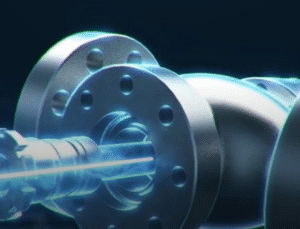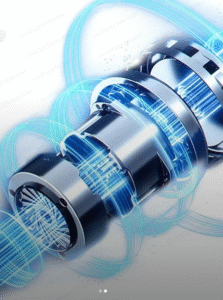Israel’s Quiet Clean-Energy Revolution – Smart Pipes Turning Daily Water Flow into Local Power

Israel is introducing a deceptively simple but transformative technology: “smart pipes” equipped with tiny internal turbines that generate clean electricity from the natural pressure of flowing water. What began as an engineering experiment is now emerging as a model for how cities can produce renewable energy without reshaping landscapes or building costly new infrastructure.
Across several Israeli municipalities, these pipes are already quietly powering streetlights, digital sensors and public facilities, as a proof showing the country’s famously strained water systems can double as climate-friendly electricity generators. Residents are benefiting from the impact is practically. Safer, well-lit roads, more reliable public services, lower energy costs for local governments, etc.

The technology works by installing small turbines inside existing water pipes. As water flows toward homes, farms, or industrial zones, the pressure spins the turbines, producing electricity that is fed straight into the local grid. Rural areas that struggle with limited electrical infrastructure can power essential services. Urban neighborhoods can maintain lighting and smart-city sensors without tapping into overstretched national grids. And because the system doesn’t alter water supply or pressure, residents experience no change to daily usage.
Israel’s rapid adoption of these systems is a sign of a broader political prioritization. Water scarcity has long shaped Israeli policy, and this technology transforms a longstanding challenge into an opportunity, turning every movement of water into a potential power source.
The approach also sidesteps the political tensions sometimes sparked by large renewable energy projects. Unlike dams or large solar farms, both of which can provoke disputes over land rights, environmental impact, or local displacement. Smart Pipes require no new land, no major construction, and no ecological trade-offs.
Traditional hydropower relies on massive dams that can disrupt rivers and ecosystems. By contrast, Smart Pipes quietly harvest energy that would otherwise go to waste. They fit into existing networks, from city water lines to agricultural irrigation, making them a particularly attractive solution for countries hesitant to undertake large infrastructure overhauls.

As cities worldwide grapple with the dual pressures of climate adaptation and rising electricity demand, Israel’s experiment offers a blueprint for low-cost, low-impact innovation. The ability to generate power from ordinary water flow, without environmental upheaval, could be especially valuable for developing countries or regions with limited budgets.
In a world searching for pragmatic climate solutions, Israel’s smart pipes show that sometimes the most powerful innovations don’t require vast land, towering turbines or new dams. They just need a clever rethink of the infrastructure that are already everyday’s use.







